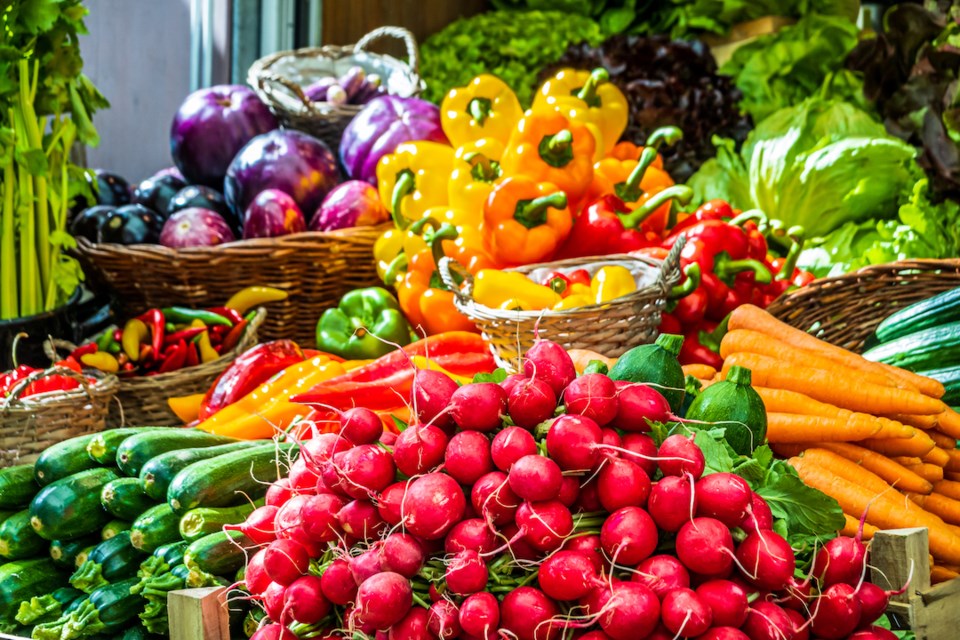As “organic matter in soils takes years to build and could take just one winter to lose” Mel Sylvestre, local farmer and Sunshine Coast Farmers Institute president said she was “relieved” with a two-year exemption to Stage 4 regional water use bans for commercial food crops. That and a commitment to work on changes to farm water use rules was endorsed by the Sunshine Coast Regional District Board (SCRD) on Sept. 14. It staved off watering bans set to start Sept. 22 for commercial farm customers on the Chapman water system, which is at Stage 4 for the third consecutive September.
How drought and watering bans impact Coast farms
Soil on Sylvestre’s Grounded Acres Organic Farm, in SCRD Area E and on Chapman system water, was damaged by 2022’s September through December outdoor water use restrictions. She explained in a Sept. 15 interview with Coast Reporter that with a lack of rain into October last year, moisture dependent winter cover crops planted post-harvest on a quarter to a half of the farm’s crop area failed, as irrigation wasn’t possible. Those soils eroded and nutrients in them leached away.
“The result was the following year, you have to add a lot more compost, more fertilizer, and the costs of those are going up. And it is not just over a year, it will impact multiple years of production,” she stated.
Sylvestre said supplies of local produce drop when farmers can’t depend on using regional supplies for crop watering. Along with poor crop yields due to compromised winter cover, this year those uncertainties meant late crops weren’t planted. A portion of what could have been a productive local fall growing season was lost for farmers that do “succession seeding” and quick turnaround crops like greens for salad mix and radishes.
With the SCRD’s temporary watering ban exemption approved through 2024, Sylvestre said she was happy that can be avoided next year, as late summer and fall outdoor water use bans come at a time when farmers are at their busiest and already near exhaustion.
A letter signed by five Institute directors sent to the SCRD board in advance of the Sept. 14 meeting identified the outdoor water use exemption as a local food security issue. “As the climate keeps changing and bringing more and more challenges to our growing season, we believe that the SCRD has an important role to play in allowing farmers to do their share in providing as much locally-grown food for as long as possible within the growing season," it stated.
Water use changes proposed
Another positive in the regional board’s recent motion, according to Sylvestre, is the willingness to adjust water use rules. She pointed out that the Institute has been asking for changes for over two years. Those would include making the exemption from watering bans for commercial food crops permanent.
In addition, expansion of the definition of a commercial farm in water regulations to ensure as many local food growers as possible have water supply security is being sought. While the SCRD updated the definition earlier this year to include properties classified as farms for taxation purposes, the Institute wants it to also add in the opportunity for producers growing crops on land with other assessment classifications to be included. It has suggested one means of determining which water users are eligible could be providing proof of a threshold level income from food crops sales.
“A lot of food producers on the Coast don’t own their land. There are a lot of reasons why a landowner would not want to apply for farm status even though there is food production on the land. There is land value change and that creates a barrier,” she said.
“We would also like to see an agricultural rate for water used for crop irrigation,” she stated.
Why continue crop use of potable water?
Coast farms need to be able to use drinking water crops because of two factors, said Sylvestre. First, the public water system supplies only delivers treated drinking water. To access supplies and build systems to transport non-potable water, which exist in B.C, regions where agriculture plays a larger economic role, would cost “millions or billions and our region needs to focus on providing potable water first”, she said.
“Farms are businesses,” she stated, “like restaurants that use water supplies to do dishes, we use water in what we do.”
The second relates both to the situation of many local farmers not owning their properties and the smaller physical size of local farms.
“Individual farms do have wells, tanks, ponds and dugouts to help with their water supplies, but most food production happens on small acreage parcels and those types of farm infrastructure are too costly,” with most local food producers struggling to maintain a financial break-even status she explained. While water conservation efforts are the norm for all farmers, for ongoing supply, especially during drought conditions, she said many remain reliant on regional water.
When it comes to being water-use wise, Sylvestre provided an example from her farm. Earlier this year Grounded Acres had an equipment supplier review its operations with the goal of creating a grant-eligible irrigation efficiency improvement plan. The outcome of that according to Sylvestre: “They said that they could not offer any additional solutions, we were already doing everything we could."



